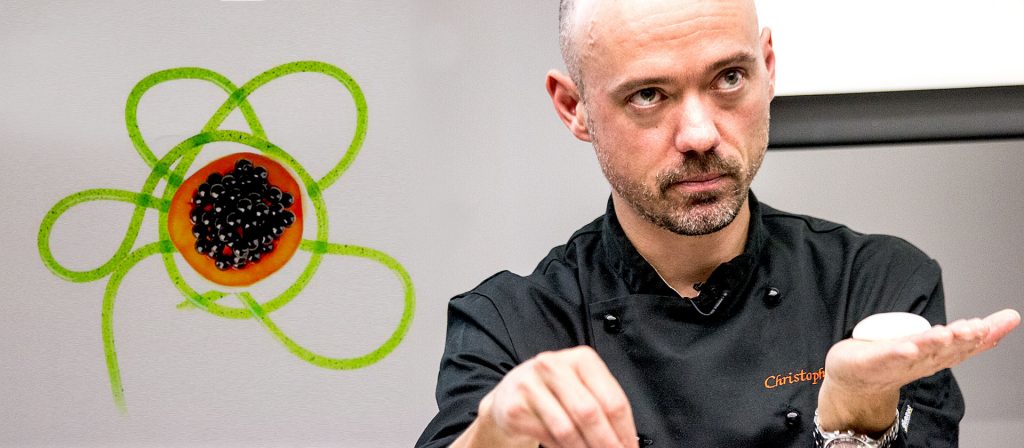If travelling is an act of freedom in times of uncertainty and growing protectionism, then travelling for food culture experiences is ‘gastrodiplomacy’ at its best.
Hearts and minds won through the stomach is a much more emotional and engaging way to construct a narrative of understanding and social cohesion amongst diverse cultures. To my mind, the social history and unique assets of Australian registered clubs make them powerhouses of possibilities.
Food is Changing How People Travel
We know tourists plan entire vacations around food and registered clubs can leverage this trend for their best interests. In fact food culture ranks third after cultural and nature motives. While Noma has proven that you can build a global community around a restaurant, you don’t have to be a Noma pop-up to build community around a club for travellers looking for authentic experiences and connections with the surrounding community. What better place to do that than in a registered club which holds the social and cultural story of its community within the fabric of its walls and the memories of its patrons?
As more travelers have realised that dining is truly an experience in itself, more restaurants and destinations are pursuing innovation and creating unique dining experiences. More international travelers choose destinations based on food, restaurants and fresh produce. Australian clubs offering innovative food activities and events are primed to meet this demand. What better place to take ‘Visiting Friends and Relatives’ than to your club to show off the chef’s latest food culture fusion creation or an Australian gin and food pairing experience?
Hungry for Authentic Experiences – Hyper-local Dining
Eighty percent of Chinese travelers say they would like to book a meal in a stranger’s house because they want to see how people live and want to meet people in an authentic setting. It’s just the same as if you went to Paris, it would be difficult to meet Parisians up close and personal unless you booked an experience specifically to do this. Seventy-five percent of Americans have engaged in eating with local families or a hands-on experience such as a cooking class led by a local chef while travelling. Travellers book food experiences, meals, cooking classes, private parties wherever their travels take them in an effort to feel the authentic.
Millennials and Gastronomic Capital
Millennials now view food as important as their clothes in defining their character and social capital. Clubs that showcase their diverse culinary culture in new and exciting ways while promoting sustainability and social responsibility, will capture the millennials stomachs, hearts and minds well into the future.
Bottom Line Benefits
Leveraging a club’s gastronomic assets has economic, social, cultural and environmental benefits. The 3rd UNWTO World Form on Gastronomic Tourism in May 2017 concluded that:
• Gastronomy is a key resource in the value proposition and differentiation of destinations. It is a market segment in itself rather than just a part of cultural tourism.
• Gastronomic (culinary tourism) broadens the view through the exercise performed by chefs and restaurants as loudspeakers to project gastronomic wealth, incorporating the triangle between cuisine, product and territory.
• Gastronomic Tourism contributes to the conservation of biodiversity and landscapes by maintaining the usage, customs and functions that allow for the preservation of the tangible and intangible wealth and the recovery of culinary memory.
• Gastronomic Tourism empowers all those who make up the chain of gastronomic value, especially the local communities, and also the professionals in their capacity as ambassadors of the territory, thus reinforcing the identity and sense of belonging and safeguarding the authenticity of each place.
• Gastronomic Tourism, through technology in the new world of a more demanding and hyper-connected customer, offers destinations the opportunity for the local community and travellers to co-construct their food stories.
• Gastronomic Tourism has the power to balance the heritage legacy between one’s own and that of others, allowing for the influence of other cultures that have contributed to the evolution of gastronomy of the region over the centuries.
Does Marketing Food Have a Positive Impact?
According to a recent survey by the United Nations World Tourism Organisation (UNWTO) local government tourism boards and travel companies agree they are not doing enough to market their regions food and beverage offerings. While all respondents had indicated they hosted activities to promote food and beverage offerings and experiences, fewer than half said they had a food tourism strategy. The data below highlights the respondent’s thoughts on the benefits of promoting food tourism.
Type of Impact and Percent of Respondents
Promoting food tourism increased our positive media coverage – 77.20%
Promoting food tourism had an impact on increasing our website traffic – 65%
Promoting food tourism increased our income from this kind of tourism – 59.50%
Promoting food tourism increased sales at food-related businesses – 52.50%
Promoting food tourism increased bookings from tourists interested in food – 44%
Promoting food tourism had no impacts at all – 14%
Registered clubs can benefit from the experience of Tourism Boards in targeting the most popular food tourism promotion activities to see what resonates with locals and visitors and how best to spend their marketing dollars.
Activity and Percent of Respondents
Read published media articles – 93%
Read published research studies – 80.70%
Organised a gastronomy event (wine festival, food truck) – 78.90%
Sponsored gastronomy events/exhibitions – 75.40%
Used Facebook to target tourists interested in food – 63.20%
Tourism product developments (food trails, museums, visits to producers) – 59.60%
Created a brochure about food types in the destination – 59.60%
Hosted big food-related events to showcase products – 54.40%
Advertised via online platforms (blogs) – 54.40%
Used Instagram to target tourists interested in food – 42.10%
Used YouTube to target tourists interested in food – 40.40%
Used Twitter to target tourists interested in food – 38.60%
Used other social media to target tourists interested in food – 33.33%
Used Google+ to target tourists interested in food – 21.10%
Used LinkedIn to target tourists interested in food – 10.50%
Sources:
https://skift.com/2017/05/19/destinations-concede-their-food-tourism-marketing-efforts-fall-short/
https://skift.com/2017/04/10/chefstech-will-travel-for-food/



